


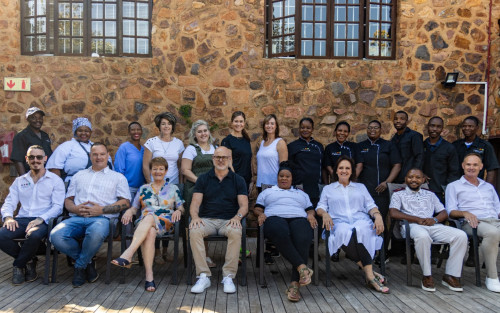





Freeman House Recovery
Verified Center
This provider's information has been quality-checked by Recovery.com's Research Team for accuracy and completeness, including center verification through appropriate third-party organizations.
Treatment Focus
This center primarily treats substance use disorders, helping you stabilize, create relapse-prevention plans, and connect to compassionate support.
Primary Level of Care
Offering intensive care with 24/7 monitoring, residential treatment is typically 30 days and can cover multiple levels of care. Length can range from 14 to 90 days typically.
Treatment Focus
This center primarily treats substance use disorders, helping you stabilize, create relapse-prevention plans, and connect to compassionate support.
Primary Level of Care
Offering intensive care with 24/7 monitoring, residential treatment is typically 30 days and can cover multiple levels of care. Length can range from 14 to 90 days typically.
Private Pay
You pay directly for treatment out of pocket. This approach can offer enhanced privacy and flexibility, without involving insurance. Exact costs vary based on program and length of stay. Contact the center for specific details.
Freeman House Recovery
Freeman House Recovery
About Freeman House Recovery
Consistently praised on Google for their transformative results, Freeman House Recovery immerses clients fully in recovery from substance use—including ketamine addiction—as well as self-destructive behaviours like gambling, gaming, shopping, and workaholism. From their upscale lodge in the mountains, they provide individualized primary inpatient treatment including medically supervised detox for up to 23 clients at a time, prioritizing each person’s joy and healing.
Embrace a Holistic Approach to Recovery
Freeman House Recovery integrates cognitive behavioural therapy (CBT), dialectical behaviour therapy (DBT), and trauma counselling to address both substance use and underlying mental health conditions. Through 3 weekly individual sessions, twice-daily group sessions, and the 12 Steps, clients learn to manage cravings and intense emotions as well as gain insight into how to modify their thoughts and behaviours. Programs also incorporate yoga, breathwork, martial arts, physiotherapy, art, woodworking, gardening and birdwatching.
Develop Self-Awareness and Resilience
At Freeman House Recovery, addiction recovery extends beyond breaking free from substance use. Their focus on positive self-development is integral to this journey. Programmes emphasize shifting from a victim mindset to an empowered one, helping clients take responsibility for their choices, prepare to face challenges, and set personal growth goals.
Boost Well-Being with Comfort and Privacy
Freeman House Recovery offers private and shared rooms with comfortable beds, soothing décor, and some with balconies and spectacular views. Men and women are housed separately, and the lodge features 24-hour security. Clients enjoy gourmet meals, tranquil gardens, a pool, gym, sauna and cold plunge, and barbecue area. Cell phone use is permitted twice weekly (three times for foreigners), with accommodations available for clients needing additional phone access for work-related responsibilities.
Highlights from the Center
Highlights
These highlights are provided by and paid for by the center.
On-site Medical Detox
Private Rooms Available
Unique Cultural Experiences
Budget Friendly
Center Overview
Treatment Focus
This center primarily treats substance use disorders, helping you stabilize, create relapse-prevention plans, and connect to compassionate support.

Freeman House Recovery
Pricing and Program Length
Estimated Center Costs
The cost listed here ($9,000 - $14,000 USD per month), is an estimate of program cost. Center price can vary based on program and length of stay. Contact the center for more information. Recovery.com strives for price transparency so you can make an informed decision.




Recovery.com Verified Listing
Recovery.com verified that the name, location, contact information and license to operate for this treatment provider are valid and up-to-date.
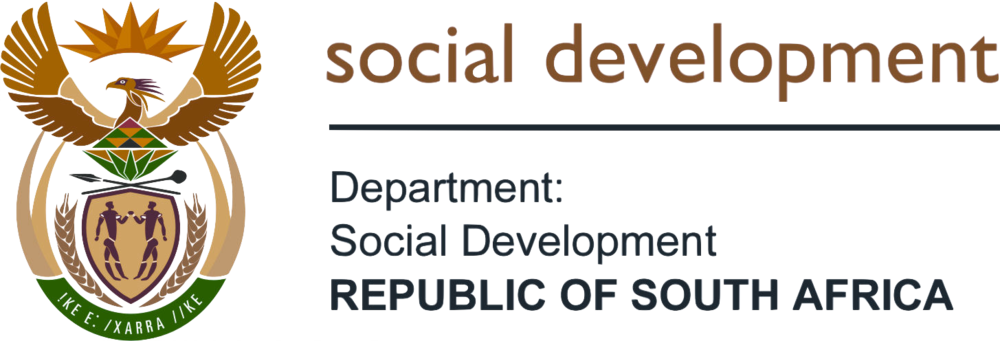
Licensed
Recovery.com is an independent, third-party mental health resource. Verification does not imply endorsement and does not guarantee the quality of treatment services.
Meet Your Care Team

Alan Freeman
Director

Brad Webster
Therapeutic Director
Certified Alcohol & Drug Counsellor (ICADC), Member BAPSA (Board of Addiction Professionals South Africa)
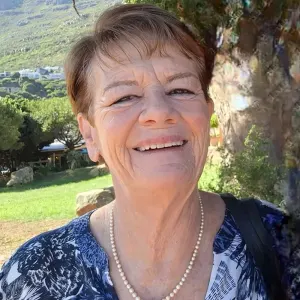
Laura Edmonds
Therapeutic Director

Colleen Muskat
Family Counselor / Senior Addiction Therapist
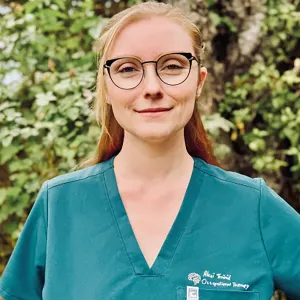
Alexi Trninic
Occupational Therapist
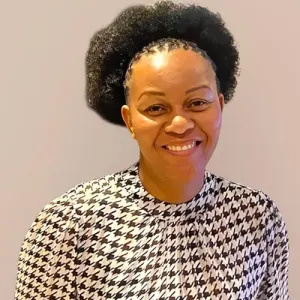
Gali Katida
Clinical Psychologist
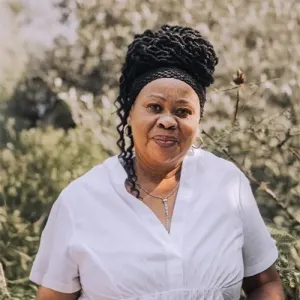
Zipporah Gaven
Head Nurse
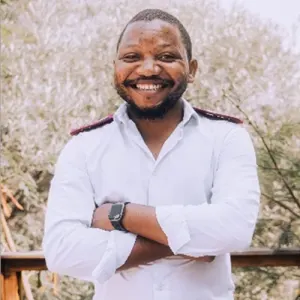
Pleasure Manyama
Professional Nurse
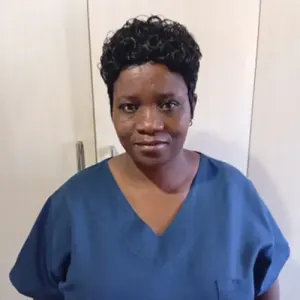
Zanele Dhlamini
Professional Nurse
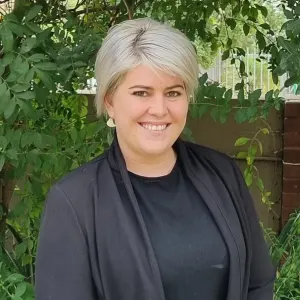
Minette Bronkhorst
Administrative Manager
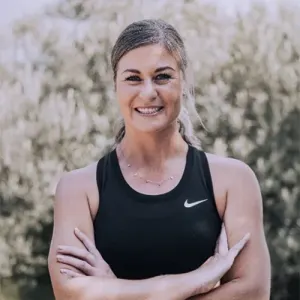
Esthé Bester
Personal Trainer

Edee Deegan-Bennie
Yoga Instructor
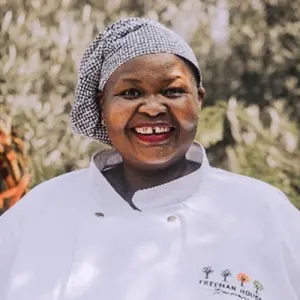
Mashadi Esther Teane
Head Chef
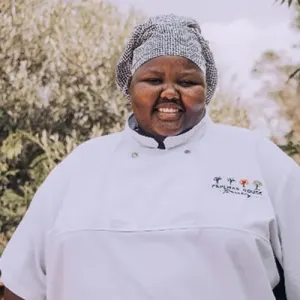
Kamogelo Teane
Chef
Your Care Options
Specializations
Adventure Therapy
This experiential approach uses the physical and emotional challenges of outdoor activities as tools for personal growth.
Alcohol
Using alcohol as a coping mechanism, or drinking excessively throughout the week, signals an alcohol use disorder.
Detox
Detox fully and safely removes toxic substances from the body, allowing the next steps in treatment to begin with a clean slate.
Co-Occurring Disorders
A person with multiple mental health diagnoses, such as addiction and depression, has co-occurring disorders also called dual diagnosis.
Cocaine
Cocaine is a stimulant with euphoric effects. Agitation, muscle ticks, psychosis, and heart issues are common symptoms of cocaine abuse.
Drug Addiction
Drug addiction is the excessive and repetitive use of substances, despite harmful consequences to a person's life, health, and relationships.
Prescription Drugs
It's possible to abuse any drug, even prescribed ones. If you crave a medication, or regularly take it more than directed, you may have an addiction.
Who We Treat
Young Adults
Emerging adults ages 18-25 receive treatment catered to the unique challenges of early adulthood, like college, risky behaviors, and vocational struggles.
LGBTQ+
Addiction and mental illnesses in the LGBTQ+ community must be treated with an affirming, safe, and relevant approach, which many centers provide.
Men and Women
Men and women attend treatment for addiction in a co-ed setting, going to therapy groups together to share experiences, struggles, and successes.
Midlife Adults
For adults ages 40+, treatment shifts to focus on the unique challenges, blocks, and risk factors of their age group, and unites peers in a similar community.
Treatment Services
Detox
Detox fully and safely removes toxic substances from the body, allowing the next steps in treatment to begin with a clean slate.
Intensive Outpatient Program
In an IOP, patients live at home or a sober living, but attend treatment typically 9-15 hours a week. Most programs include talk therapy, support groups, and other methods.
Outpatient
During outpatient rehab, patients attend a structured treatment program while continuing to live at home.
Residential
In a residential rehab program, patients live onsite, with access to daily treatment and 24-hour care. An average stay is 30-90 days.
Approaches
Family Involvement
Providers involve family in the treatment of their loved one through family therapy, visits, or both–because addiction is a family disease.
Holistic
A non-medicinal, wellness-focused approach that aims to align the mind, body, and spirit for deep and lasting healing.
Individual Treatment
Individual care meets the needs of each patient, using personalized treatment to provide them the most relevant care and greatest chance of success.
Minnesota Model
The Minnesota Model encourages abstinence and family-wide healing through the 12-Steps, group therapy, and individualized, psychological treatment.
Twelve Step
Incorporating spirituality, community, and responsibility, 12-Step philosophies prioritize the guidance of a Higher Power and a continuation of 12-Step practices.
Therapies
1-on-1 Counseling
Patient and therapist meet 1-on-1 to work through difficult emotions and behavioral challenges in a personal, private setting.
Mindfulness Therapy
This ancient practice can be mental, emotional, and even spiritual. In meditation, you focus your attention on the present moment without judgement.
Adventure Therapy
This experiential approach uses the physical and emotional challenges of outdoor activities as tools for personal growth.
Art Therapy
Visual art invites patients to examine the emotions within their work, focusing on the process of creativity and its gentle therapeutic power.
Elephant Therapy
Interacting with these awe-inspiring animals can help you regulate your emotions and practice communication.
Experiential Therapy
With this approach, patients heal by doing. Therapists help patients process difficult emotions to speak, using guided activities like art or dance.
Family Therapy
Family therapy addresses group dynamics within a family system, with a focus on improving communication and interrupting unhealthy relationship patterns.
Conditions We Treat
Pornography Addiction
A person with a porn addiction is emotionally dependent on pornography to the point that it interferes with their daily life and relationships.
Grief and Loss
Grief is a natural reaction to loss, but severe grief can interfere with your ability to function. You can get treatment for this condition.
Personality Disorders
Personality disorders destabilize the way a person thinks, feels, and behaves. If untreated, they can undermine relationships and lead to severe distress.
ADHD, ADD
ADHD is a common mental health condition caused by dopamine imbalance. Common symptoms include inattention, hyperactivitiy, and impulsivity.
Anger
Although anger itself isn't a disorder, it can get out of hand. If this feeling interferes with your relationships and daily functioning, treatment can help.
Anxiety
Anxiety is a common mental health condition that can include excessive worry, panic attacks, physical tension, and increased blood pressure.
Bipolar
This mental health condition is characterized by extreme mood swings between depression, mania, and remission.
Burnout
Burnout entails mental and physical exhaustion, and leads to a severe lack of fulfillment. This condition is often caused by overwork.
Codependency
Codependency is a pattern of emotional dependence and controlling behavior. It's most common among people with addicted loved ones.
Substances We Treat
Alcohol
Using alcohol as a coping mechanism, or drinking excessively throughout the week, signals an alcohol use disorder.
Benzodiazepines
Benzodiazepines are prescribed to treat anxiety and sleep issues. They are highly habit forming, and their abuse can cause mood changes and poor judgement.
Cocaine
Cocaine is a stimulant with euphoric effects. Agitation, muscle ticks, psychosis, and heart issues are common symptoms of cocaine abuse.
Drug Addiction
Drug addiction is the excessive and repetitive use of substances, despite harmful consequences to a person's life, health, and relationships.
Ecstasy
Ecstasy is a stimulant that causes intense euphoria and heightened awareness. Abuse of this drug can trigger depression, insomnia, and memory problems.
Heroin
Heroin is a highly addictive and illegal opioid. It can cause insomnia, collapsed veins, heart issues, and additional mental health issues.
Methamphetamine
Methamphetamine, or meth, increases energy, agitation, and paranoia. Long-term use can result in severe physical and mental health issues.
Opioids
Opioids produce pain-relief and euphoria, which can lead to addiction. This class of drugs includes prescribed medication and the illegal drug heroin.
Languages
Aftercare
Care Designed for Your Needs
Personal Amenities
Amenities
Special Considerations
Family Member Stays
Treatment providers welcome family members to stay on-site to better the experience and success of patients and their families as a whole.
Flexible technology policies
Centers with flexible technology policies allow professionals to stay in touch with work and give patients a greater sense of connection and normalcy.
Healthy Meals are provided
Great food meets great treatment, with providers serving healthy meals to restore nutrition, wellbeing, and health.
Activities
Yoga
Yoga is both a physical and spiritual practice. It includes a flow of movement, breathing techniques, and meditation.
Off-Site Activities
Yoga
Yoga is both a physical and spiritual practice. It includes a flow of movement, breathing techniques, and meditation.
Off-Site Amenities
Learn More About the Center
The Powerful Role Denial Plays in Addiction
Understand the psychological power of denial and learn strategies to break its grip.
Exploring The Four Elements That Contribute to Dependency
Delve into the biological, psychological, social, and environmental factors of addiction.
Mindfulness and Meditation: Powerful Tools for Addiction Recovery
Learn about these techniques for handling stress, anxiety, and negative emotions.
Family Support Programs: An Integrative Approach
Find strategies to navigate recovery as a family.
What people are saying
Treatment
4.8
Accommodations
4.5
Food & Nutrition
4.7
Value
4.7
Pros
- Friendly & Competent Staff (21)
- Beautiful Location (20)
- Excellent & Effective Treatment Programming (19)
- Fun Activities (19)
Cons
- Limited Aftercare (3)
- Not Enough Time With Therapist (3)
- Limited Time to Work (2)
Anonymous
Treatment in 2024 • (30 days) • Reviewed 03/24/24
Former Client
•Attorney
Ari
Treatment in 2025 • (30 days) • Reviewed 06/16/25
Former Client
•USA
Anonymous
Treatment in 2022 • (30 days) • Reviewed 02/27/23
Former Client
•Professional
I.v
Treatment in 2023 • (30 days) • Reviewed 05/11/23
Former Client
•Entrepreneur
•Texas
Liza
Treatment in 2023 • (30 days) • Reviewed 07/26/23
Former Client
•Education
•South Africa





